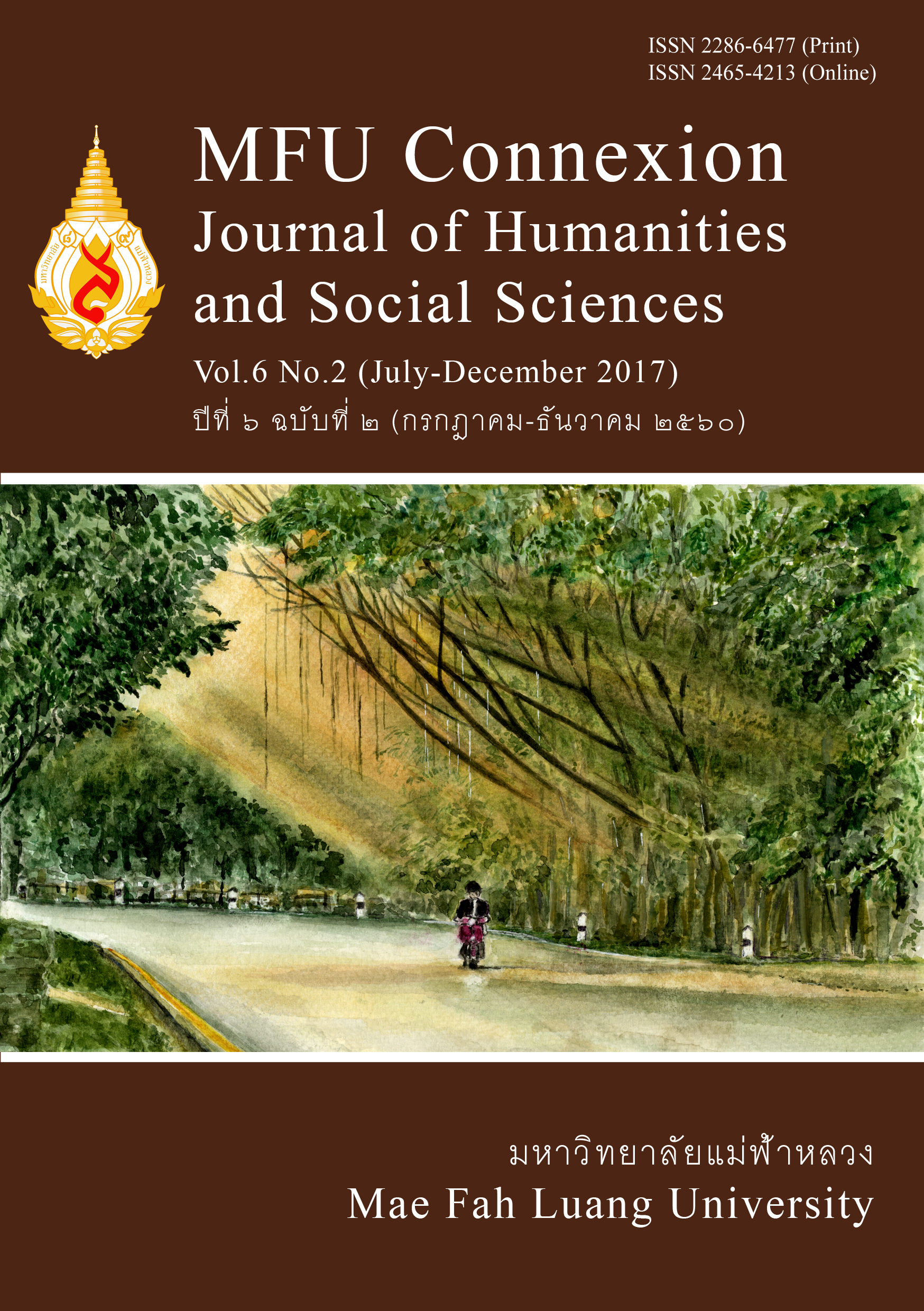The Development of Thai Negotiable Instrument Law for Investment (in Thai)
Main Article Content
Abstract
This article aims to study idea of the negotiable instrument under Thai Commercial code, study principle of holder protect under The securities and Exchange Act B.E.2535 and study Securities and Exchange Commission announcement. Besides, this article seek for a comparative study on the idea of the negotiable instrument under The Uniform Commercial Code from United states of America and The negotiable Instrument Act from The Socialist Republic of Vietnam. The study was conducted by gathering information and documents both in Thai and English documents namely legislations, textbooks, and any other concerning information under in order to rectify or development of Thai negotiable instrument law to make principle of holder protect and make all of instrument for become to the effect of the negotiable instrument law.
According to the study, It is found many disadvantage to make instrument for investment in effect of the negotiable instrument law especially in 3 points. Firstly, limitation in Thai Commercial Code. Thai commercial code in article 898 has limited in 3 kinds of negotiable instruments only. Secondly, limitation in Financial Institution Business Act B.E.2551. This Act has permitted only Financial Institution to make Certificate of deposit (one of the kind negotiable instrument for investment in Thai legal). Thirdly, limitation in the Securities and Exchange Act B.E.2535. This Act has not had covenant in definition of negotiable instrument for investment, right of holder’s instrument, and idea of holder’s protect. The development of Instrument for investment is limited by that advantages and has directly effect to investor and liquidity risk in Instrument.
As a result, it is recommended that the legislate the Negotiable Instrument law for investment and should be legislate following the Uniform Commercial code from United State of America and The negotiable instrument Act form The socialist republic of Vietnam.
Article Details
Copyright
Connexion: Journal of Humanities and Social Sciences has an exclusive right to publish the accepted articles in any form. However, the author retains the following rights:
1. The right to the ownership of the article;
2. The right to use all or part of the article in his/her other works;
3. The right to re-produce the article for personal use or for use in the author’s organisation, in which case the author must obtain permission from Connexion: Journal of Humanities and Social Sciences;
4. The right to make copies of all or part of the work for educational use or for the author’s use in classroom teaching; and
5. The right to include the work (both the preprinted and printed versions) in an institutional repository.
References
Asawaroj, S. (2000) Thai civil and commercial code, law descriptive for bills of exchange (คำอธิบายประมวลกฎหมายแพ่งและพาณิชย์ ว่าด้วยตั๋วเงิน), 4th edition, Bangkok: Thammasat University Press. (in Thai)
Kongsomboon, P. (1978) The struggle to raise claims to debtors who would not bills (ข้อต่อสู้ที่ลูกหนี้จะยกขึ้นอ้างเพื่อใช้ยันผู้ทรงตั๋วเงินไม่ได้), Chulalongkorn Law Journal, vol. 4, no. 3, p. 77. (in Thai)
Kongsomboon, P. (2005) Thai civil and commercial code, law descriptive for bills of exchange (คำอธิบายกฎหมายลักษณะตั๋วเงิน), Bangkok: Nititham. (in Thai)
Kongsomboon, P. (2011a) Thai civil and commercial code, law descriptive for bills of exchange (คำอธิบายกฎหมายลักษณะตั๋วเงิน), 3rd edition, Bangkok: Nititham. (in Thai)
Kongsomboon, P. (2011b) The legislative instruments: Principles and concepts in the development of financial instruments for funding (การบัญญัติกฎหมายว่าด้วยตราสารเปลี่ยนมือ: หลักและแนวคิดในการพัฒนาตราสารทางการเงินเพื่อการระดมทุน), Dhurakijpundit Law Journal, vol. 9, no.1, pp. 11-25. (in Thai)
Richard, E. S., & Steven H. N. (1993) Negotiable instrument and check collection, 4thedition, Minnesota: West Publishing.
Sarapong, T. (2014) Law of bills (กฎหมายลักษณะตั๋วเงิน), 7th edition, Ubon Ratchathani: Ubon Ratchathani University Press. (in Thai)
Tingsapat, J. (1984) Note in the supreme court judgment on the petition 311/1984 (หมายเหตุท้ายคำพิพากษาฏีกาที่ 311/2527 ใน คำพิพากษาฎีกา ประจำพุทธศักราช 2527), Bangkok: Thai Bar Association under the Royal Patronage. (in Thai)
Tingsapat, J. (1985) Thai civil and commercial code, current account and bills (กฎหมายแพ่งและพาณิชย์ว่าด้วยบัญชีเดินสะพัดและตั๋วเงิน), 16th edition, Bangkok: Thammasat University Press. (in Thai)


